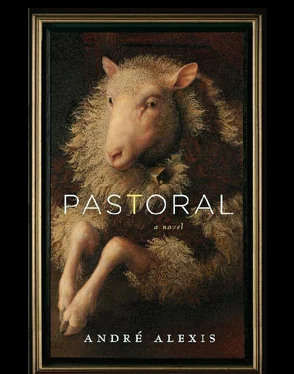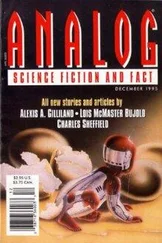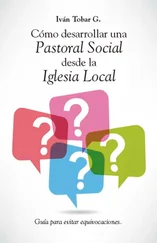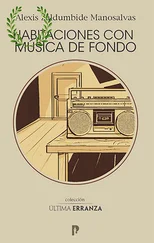Days passed and not one of the words he had written, save ‘Amen,’ remained unchanged or unexamined. He thought fleetingly, but more than once, of allowing someone else to write the sermon for him. That seemed worse than mouthing clichés, though. It seemed cowardly.
The problem was that he had, in some measure, succumbed to the sheep’s curse. He actually did find it more difficult now than he had previously to imagine a world ‘beyond,’ a world beyond this beautiful world. How prescient the sheep (that is, Lowther or one of his friends) had been to suggest that greater sensitivity to this world meant a weakening of the hold God had on the imagination. In the midst of his rewrites, Father Pennant began to think of death as nothing but an end, and how was one to speak of a cul-de-sac or a bricked-up exit? Death was no more than the termination of lively functions, the collective refusal to go on of a group of organs that had, moments before, collectively refused to desist. It was an end, no more to be mourned or explained than the end of a symphony, the final pages of a book, the last daub of paint applied to a canvas. And so, death: significant only in being the last of something. But if death had so little significance, what did that make of life? Wasn’t life, as they say, given its poignancy and meaning by death?
Yes, finally a cliché that he could use. Death gave poignancy to life. It was the shadow in Arcadia. A field through which a river ran, white clouds, wheat in stooks — all was made more precious by the presence of evening: a touch of crimson, deepening shadows, the time of day when it was not possible to tell dog from wolf. Lowther had lived a long twilight. From the moment his father had told him that he, Lowther, would die at sixty-three, Lowther had lived in anticipation of night, and now night had come. It was not to be mourned. Certainly, the passing of Lowther’s spirit was sad for those who had loved him. But death was nothing and there was nothing beyond it that was of concern for those who remained.
In the eulogy he delivered, Father Pennant did not (of course) say that there was ‘nothing in death that is of concern for the living.’ He shared his thoughts about Arcadia before going on to recall his most precious memory of Lowther, a man he had not known for long — five months, was it? — but whom he had come to treasure. For at least two weeks, Lowther had been baking bread, dozens and dozens of loaves. At times, every surface in the kitchen had been whitened by flour. Lowther had thrown out many of the loaves he’d made. Others, they had eaten. These had been wonderful, but Lowther had been unsatisfied with them. Father Pennant did not understand Lowther’s sudden passion for bread until, one evening, as they sat down for supper, Lowther brought out a loaf that tasted familiar and smelled of yeast, molasses and burnt walnuts. In order to apologize for his bad mood in the days after he’d failed to die, Lowther had perfectly duplicated Harrington’s brown bread, Father Pennant’s favourite. And Lowther, having gotten the recipe right, had baked a further dozen of the loaves. There were eleven of them still in the rectory’s freezer, and Christopher Pennant did not know if it were best to eat them or to preserve them in Lowther’s memory.
Lowther’s funeral came quickly and went quickly by. Because Lowther had kept to himself for the most part, the funeral was not well-attended. Heath was there, of course, as were a handful of people from Sarnia and a man from Petrolia whose name was Tully. There were some ten people in all, if you included the altar boys.
The day was sunny, so the stained-glass images were brightly lit. The saints, Zeno and Zenobius, went about their business, laughing or raising the dead, in what looked like jewelled surroundings. The saints on the other side were in darker, but still striking, tones. There was a cheerfulness to the funeral, though Father Pennant was distraught at Lowther’s death. At times during the mass, a wind blew through the church, carrying the smell of freshly cut grass.
Despite his efforts to think about his friend and to maintain seriousness, Father Pennant found his mood lightened as the service progressed so that, by the time he rose to give the eulogy, it was as if Lowther were there with him, and it would have been embarrassing to say too much or, worse, to be pompous. As a consequence, Father Pennant gave a moving eulogy, one that was pleasing to those who had known Lowther well.
At the cemetery, Father Pennant spoke a few warm words, commended Lowther’s spirit to the care of the God Lowther had so fervently believed in. He and the others then left the place where, spiritually speaking, there was no trace of Lowther Williams.
Father Pennant was exhausted after the funeral. He was emotionally drained. However, he’d invited Heath Lambert to dinner and so, that evening, he had to tidy the rectory and prepare a meal for two: grilled pork, mashed fingerlings with green onions, and black pudding. It was all prepared as Lowther might have, but Father Pennant used a cookbook from England and a calculator to convert the weights and volumes.
The two men ate at seven o’clock. The setting sun was reddish but the spirit of the day had not dissipated. They spoke of Lowther. Though Heath had known him much longer than Father Pennant had, there were details of Lowther’s life to which he had not been privy, details Lowther had confessed to the priest but that Father Pennant was loath to share.
Happy to talk about his truest friend, Heath wondered whether he or Father Pennant had known Lowther best. Clearly, Father Pennant knew more of the facts or, at least, Lowther’s angle on the facts. But a man is more than the incidents that make up his life and more than what he judges significant or worth hiding. Heath Lambert felt that, were Lowther with them, he could predict Lowther’s behaviour. And this, as Father Pennant himself admitted, was beyond the priest. Though they had been close over the months they’d lived together, Father Pennant had never — or never with any certainty — been able to say what his friend would do. Moreover, he still had a number of questions about Lowther. One of them concerned the sheep. After describing his encounter at Preston’s farm to Heath, Father Pennant asked
— How did Lowther make the sheep talk?
— I don’t know that he did, answered Heath. I don’t know that he had anything to do with it. After you saw Mayor Fox walk on water, Lowther felt pretty guilty. He thought it was his fault you got such a shock. I don’t think he wanted to put you through that again. He’d be the one to do it, I guess, if he changed his mind. I don’t know how, though.
— A hologram, maybe?
— No, he’d have needed my help for that. And let me tell you: that was a costly business. Those gypsy moths were an expensive gift, if you know what I mean. And it took a lot of work.
— I was upset when he told me the moths were an illusion, said Father Pennant. I kind of knew before he confessed, but being sure was still a bit … unpleasant. It doesn’t make you feel good to be fooled.
— I’m with you there, said Heath. I’d have been pissed too. But it was one hell of a thing to pull off. Felt like solving an equation.
— I thought the whole thing was diabolical, said Father Pennant.
— Diabolical? said Heath. I could get used to being lord of the moths. They’d make good wallpaper.
Both of them laughed.
Father Pennant had put out a small white plate filled with olive oil: a white circle that held a yellowish circle. Beside the plate of oil there was another plate on which there were rough slices of the bread Lowther had made. Heath took a piece of bread, dipped it in the olive oil, shook a few grains of salt over it and ate.
Читать дальше












